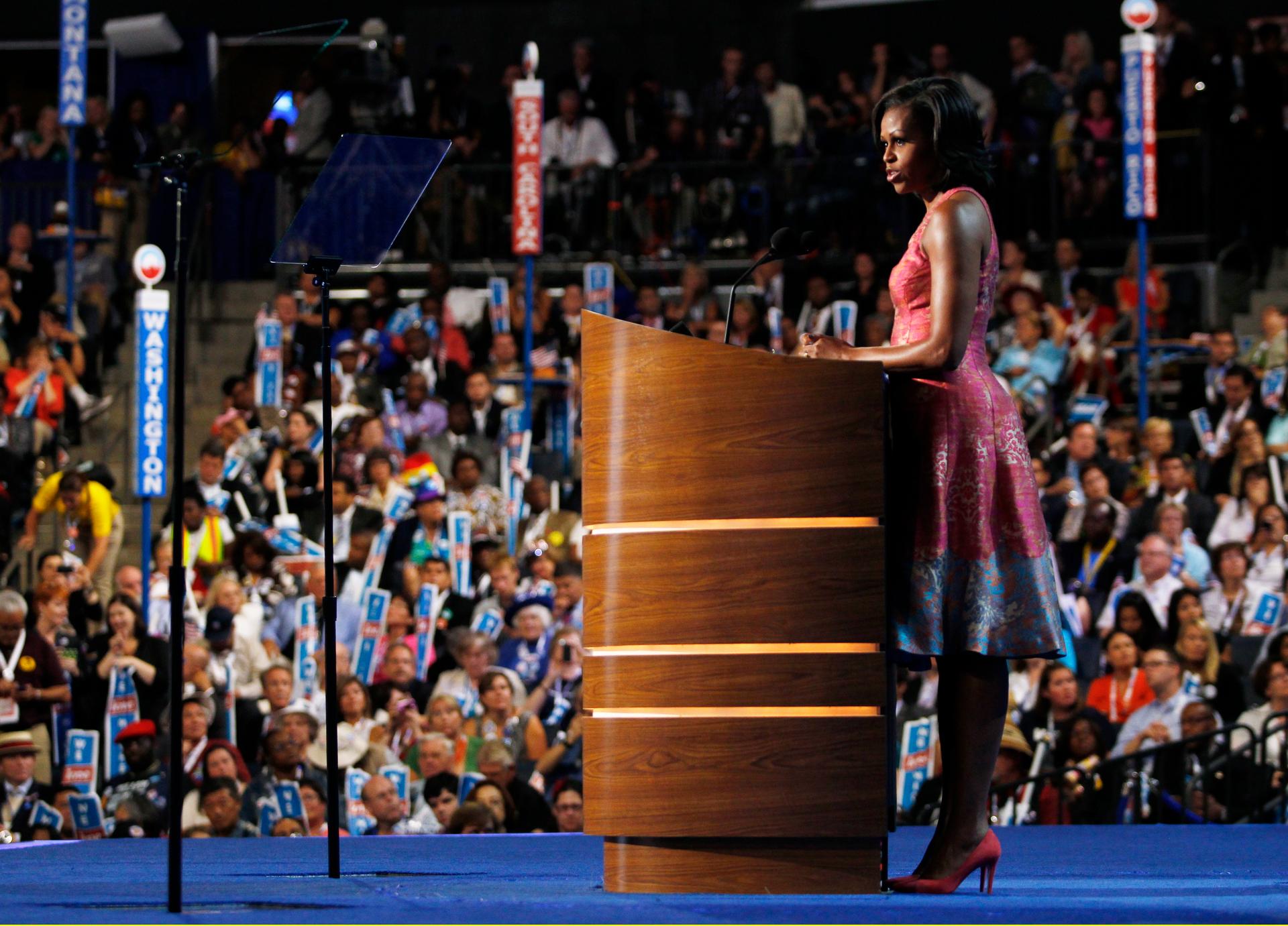VIDEO: Michelle Obama draws praise for speech at Democratic National Convention
U.S. first lady Michelle Obama addresses the first session of the Democratic National Convention in Charlotte, N.C., Sept. 4, 2012. (Photo by Jessica Rinaldi/Reuters.)
Michelle Obama was front and center at the Democratic National Convention Tuesday night, delivering a full-throated endorsement of her husband, President Barack Obama.
Her speech was warmly received at the venue and widely praised on the web and social media.
The role of the candidate’s wife has evolved over time, but at political conventions, she is often called upon to “soften” her husband, to “humanize” him, to show the voters that her husband is more than just a politician.
“Barack knows what it means when a family struggles,” Michelle Obama said Tuesday night. “He knows what it means to want something more for your kids and grandkids. Barack knows the American dream because he’s lived it, and he wants everyone in this country to have that same opportunity, no matter who we are, or where we’re from, or what we look like, or who we love.”
That was certainly Ann Romney’s approach at last week’s Republican National Convention in Tampa, as well. “I can tell you why I fell in love with him,” Ann Romney said. “He was tall, laughed a lot. He was nervous: girls like that. It shows a guy’s a little intimidated. He was nice to my parents but he was really glad when they weren’t around. But more than anything, he made me laugh.”
Michelle Obama has come a long way since 2008, when she stumbled in the campaign before delivering a warm, loving, but less agressive speech than the one she delivered Tuesday night.
Juana Summers, national political reporter for Politico, said the first lady’s speech Tuesday night amounted to a reintroduction to the American people, and an appeal to them to rally behind him like they did in 2008.
“That’s certainly critical, as there’s only 3 to 4 percent of persuadable voters in this year’s election,” she said.
Takeaway Washington correspondent Todd Zwillich called Michelle Obama’s speech “very partisan,” but “veiled.”
“Something Michelle Obama is really good at,” he said. “It’s not the first time she’s delivered this speech. Some of it was new, a lot of it is pretty standard from her stump speech.”
Zwillich said she drew a lot of stark differences between herself and the president and the Romneys.
But for all the laudatory comments the speech got, at least one New York Times analysis called it — and Ann Romney’s speech — a reflection of the role of first lady, frozen in the 1950s.
Summers agreed.
“There’s still a level of uncomfortableness when you talk about first ladies or spouses of politicians. You saw it earlier on the campaign trail with Ann Romney who was pretty widely criticized when she got into some of the finer political points of the campaign,” Summers said.
Every day, reporters and producers at The World are hard at work bringing you human-centered news from across the globe. But we can’t do it without you. We need your support to ensure we can continue this work for another year.
Make a gift today, and you’ll help us unlock a matching gift of $67,000!
